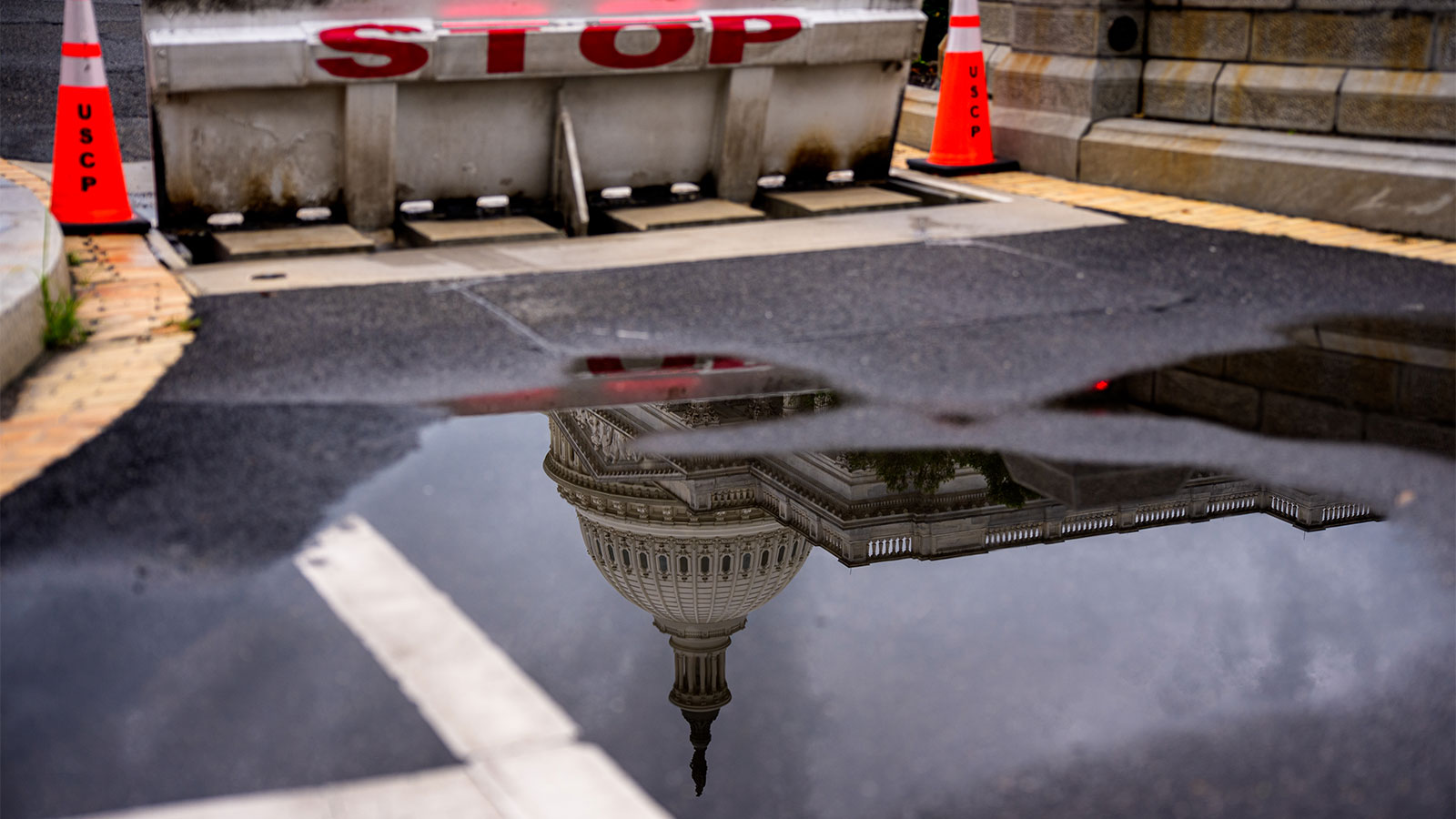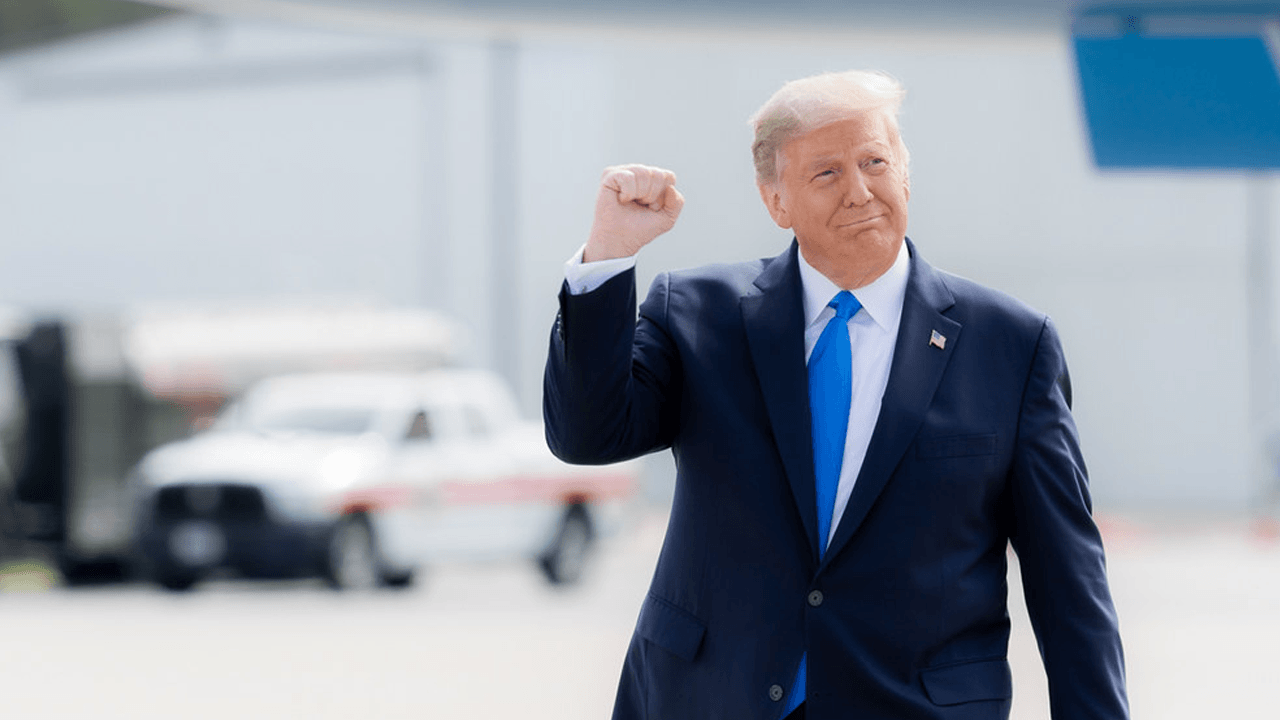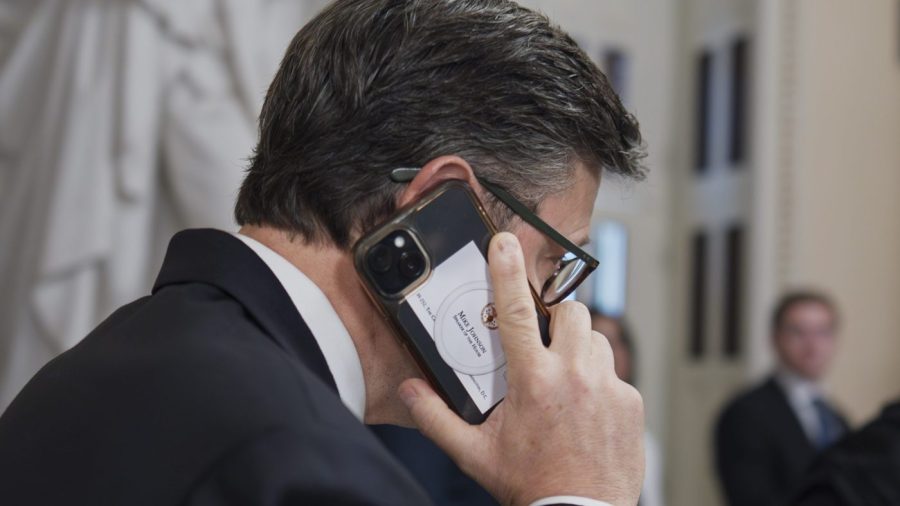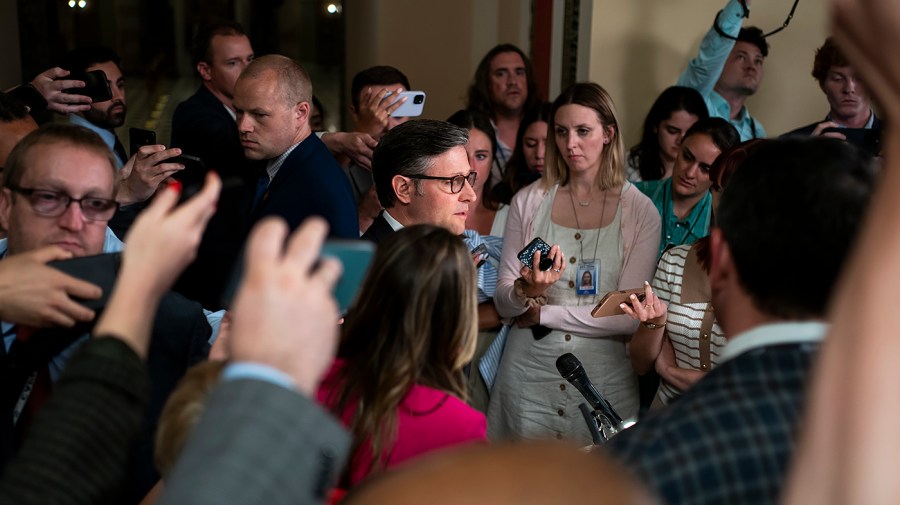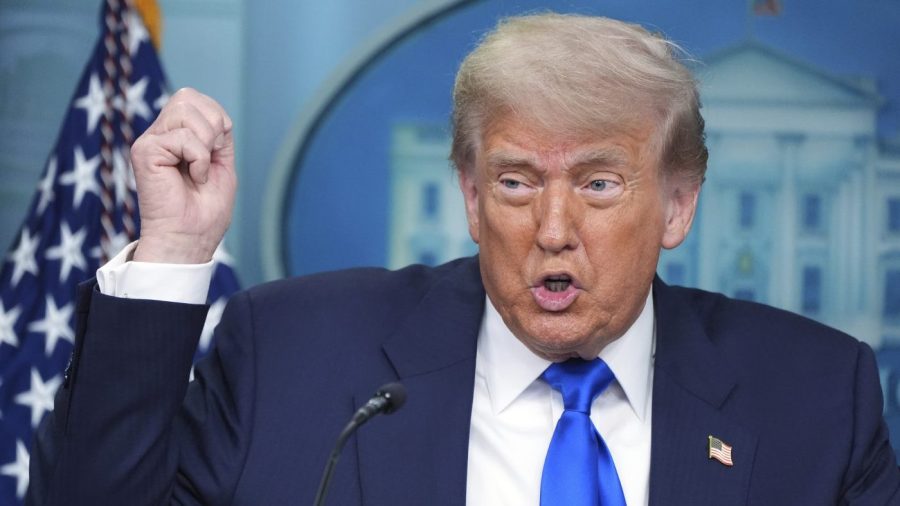The last time a Republican-controlled Congress and President Donald Trump moved to slash Medicaid spending, in 2017, a key political force stood in their way: GOP governors.
Now, as Congress steamrolls toward passing historic Medicaid cuts of about $1 trillion over 10 years through Trump’s tax and spending legislation, red-state governors are saying little publicly about what it does to health care — even as they face reductions that will punch multibillion-dollar holes in their states’ budgets.
Medicaid, a program jointly run by states and the federal government, covers more than 70 million low-income or disabled people, including nearly half of the nation’s children. Republicans say the $900 billion-a-year program was allowed to grow too large under Democrats Barack Obama and Joe Biden by adding nondisabled adults they say don’t deserve government assistance, and they have long sought to scale it back.
Some of the biggest health cuts in the legislation Trump calls the “One Big Beautiful Bill” are achieved through new policies that would reduce enrollment by imposing more paperwork demands on enrollees, including a requirement that many prove they’re working. Those policies would affect only states that expanded Medicaid to more low-income people under the Affordable Care Act.
Nineteen of those states are led by Republican governors. Their silence on the bill’s health measures is giving political cover to GOP lawmakers from their states as they seek to cut Medicaid coverage for millions of people who gained it within the last decade.
KFF Health News contacted all 19 governors for comment on the legislation’s Medicaid cuts. Only six responded. Most said they backed imposing a work requirement on adult Medicaid enrollees.
“Implementing work requirements for able-bodied adults is a good and necessary reform so that Medicaid is being used for temporary assistance and not a permanent entitlement,” said Drew Galang, a spokesperson for Gov. Patrick Morrisey of West Virginia.
Email Sign-Up
Subscribe to KFF Health News’ free Morning Briefing.
“Governor Rhoden supports workforce participation as a requirement of Medicaid expansion eligibility,” said Josie Harms, a spokesperson for South Dakota Gov. Larry Rhoden, adding that congressional lawmakers have the governor’s support: “South Dakota has an excellent federal delegation, and Governor Rhoden trusts them to fight for South Dakota’s priorities while delivering on President Trump’s promises.”
In a sign of how the political winds have changed, none of the governors said anything about another of the legislation’s significant cuts, to provider taxes — a tool that nearly all of their states use to help pay their share of Medicaid and gain additional funds from the federal government. That change is expected to cost states billions.
No Longer a Bipartisan Issue
In contrast to the radio silence from GOP governors, Democratic governors have campaigned against the megabill for weeks.
Pennsylvania Gov. Josh Shapiro posted on the social platform X that Trump and congressional Republicans were misleading Americans by saying they were cutting only waste, fraud, and abuse in Medicaid.
“They’re rushing to kick hundreds of thousands of Pennsylvanians off their healthcare — and lying about it,” he posted. “The damage this will do here in Pennsylvania and across America is staggering and will be felt for years to come.”
In New York, Gov. Kathy Hochul on July 1 charged that Trump’s legislation would devastate hospitals and could lead to more than 34,000 job cuts in her state.
“The collective impact of the GOP reconciliation bill in Washington, D.C., could force hospitals to curtail critically needed services such as maternity care and psychiatric treatment, not to mention to downsize operations, and even close entirely,” she said in a statement.
In 2017, the chorus was bipartisan, as Republican governors in Ohio, Nevada, and Massachusetts spoke out against cutting Medicaid. Trump’s bill to repeal much of the Affordable Care Act and roll back its Medicaid expansion narrowly failed in the Senate.
“It’s been surprising that red-state governors, particularly those in Medicaid expansion states, haven’t spoken out against Medicaid cuts,” said Larry Levitt, executive vice president for health policy at KFF, a health information nonprofit that includes KFF Health News. “Republican governors were a potent political force in the failed 2017 effort to repeal and replace the ACA, including Medicaid expansion.”
What’s changed since 2017, policy experts say, is that there are fewer moderate Republican governors, and GOP state executives who advocated for Medicaid expansion over a decade ago are no longer in office.
Additionally, seven of the then-red states that expanded Medicaid did so via ballot initiative, mostly over opposition from their governors.
In fact, the Medicaid work requirement is backed by many Republican governors, even if it means less federal Medicaid money and leads to fewer people covered.
Several states, including Arkansas and Ohio, have already passed state laws to implement a requirement that adults enrolled under the ACA’s Medicaid expansion work, volunteer, go to school, or participate in job training. Most states have yet to bring work requirement programs to fruition because they are waiting for federal government approval.
Charles “Chip” Kahn, president of the Federation of American Hospitals, a trade group of investor-owned hospitals, said that while fewer governors have engaged publicly in trying to block Medicaid cuts under the bill, federal lawmakers are hearing from legislators in their states.
A political dilemma for Republican governors is that, unlike in 2017, the bill before Congress is not legislation aimed expressly at repealing Obamacare. With a scope broader than health care, it would extend many of Trump’s tax cuts and direct billions in new spending toward border security, immigration enforcement, and the military, while also cutting health care spending.
“It’s like playing multidimensional chess rather than focusing on one issue,” Kahn said.
Larry Jacobs, director of the Center for the Study of Politics and Governance at the University of Minnesota, said some Republican governors may have expressed concerns privately to their states’ GOP senators but are not speaking out publicly for fear of drawing Trump’s wrath.
“Why are they being cagey? Trump and not wanting to be ‘Liz Cheney’d,’” Jacobs said, referring to the Republican former Wyoming lawmaker whom Trump helped oust after she served as vice chair of an inquiry into his attempts to overturn the results of the 2020 election.
Walking Political Tightropes
The political peril Republican lawmakers face in publicly challenging Trump remains explicit. On June 29, Sen. Thom Tillis (R-N.C.) announced he would not run for reelection after he voiced concerns about the bill and the president threatened to back a primary challenger. Tillis was one of three GOP senators to vote against it on July 1, though it still narrowly passed.
In addition to the work requirement, the biggest Medicaid cuts in the bill stem from its restrictions on provider taxes — levies that states impose on hospitals, nursing homes, and other health care institutions to help increase their federal reimbursement. Much of the additional money is then returned to the health care providers in the form of higher payments for their Medicaid patients.
The practice, which has been adopted in every state but Alaska, has been criticized by some Beltway Republicans as “money laundering” — even though the taxes are approved by state lawmakers and the federal Centers for Medicare & Medicaid Services and have been allowed under federal law for decades.
The Senate bill would limit the money states could raise — a move that would mean billions in funding cuts to states and their hospitals.
The states with Republican governors that expanded Medicaid are Alaska, Arkansas, Idaho, Indiana, Iowa, Louisiana, Missouri, Montana, Nebraska, New Hampshire, Nevada, North Dakota, Ohio, Oklahoma, South Dakota, Vermont, Virginia, West Virginia, and Utah.
One of the governors who expressed concerns about repealing the Obamacare Medicaid expansion in 2017 was Jim Justice of West Virginia, a Democrat at the time.
In a June 2017 letter to West Virginia Sen. Shelley Moore Capito, a Republican, Justice wrote: “Since so many of our people count on Medicaid, any cut to Medicaid would destroy families in West Virginia.” He added that “the consequences would be beyond catastrophic.”
On July 1, Justice — elected to the Senate as a Republican last year — voted for Trump’s megabill, including its Medicaid cuts.
“The Senator believes this bill strikes a good balance between protecting the most vulnerable and those who rely on the program while rooting out waste, fraud, and abuse to ensure the program is run efficiently for those deserving,” William O’Grady, a Justice spokesperson, said in an email July 2.
KFF Health News correspondent Arielle Zionts contributed to this report.

